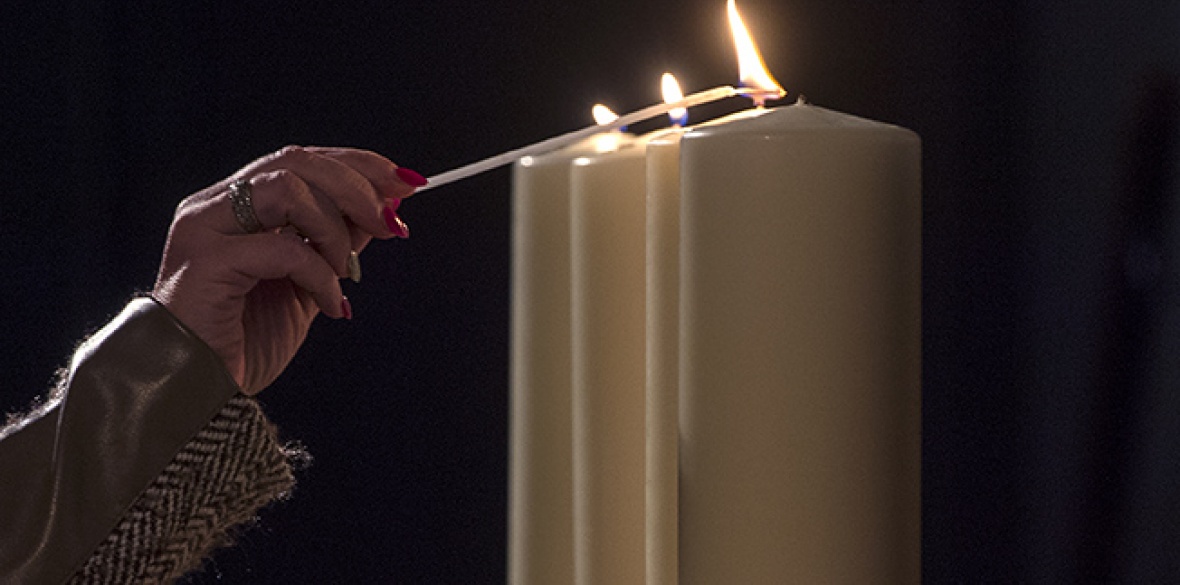This is the last article you can read this month
You can read more article this month
You can read more articles this month
Sorry your limit is up for this month
Reset on:
Please help support the Morning Star by subscribing here
SOON, 80 years after the liberation of Auschwitz by the Red Army, there will be no more survivors to bear witness to what was revealed in January 1945. This tragic lacuna will intensify the already existing challenge to Holocaust memory.
Despite ritual genuflections commemorating the horrors unleashed by the Nazis, it is apparent that the past decade has witnessed an accelerating trend toward the distortion of Holocaust history in mainstream political and public discourse.
Although governments and non-governmental institutions continue to launch important initiatives to preserve the memory of the Holocaust and promote public awareness and education about it, the current trend of Holocaust denial and revisionism threatens decades of understanding and meaningful commemoration.
The election of nationalist right-wing governments in many European countries, and the growth of right-wing and neofascist parties in others, has resulted in the historical record of fascism, anti-semitism and the Holocaust being distorted or disregarded altogether. Compounded by the rise of anti-semitism in many countries, the prevalent view on the right is that Jews focus too much on the Holocaust and Holocaust memory.
On the left, however, Holocaust memory has erroneously raised concerns because it is invoked by the Israeli government to justify the war against Gaza. While rejecting this conflation, it should not divert us from comprehending historical truth nor should it subvert our awareness of anti-semitism.
Clearly the substantial effort over many decades by survivors, historians, educators and institutions in documenting and understanding Holocaust history has not been effective enough. Facilitated by the internet and social media, current trends in Holocaust distortion or denial are spreading and intensifying.
In Hungary, Poland and Bulgaria (all previously under Nazi occupation) there has been a systematic attempt to exonerate their own people from any complicity or compliance with the Nazis and even to assert that their citizens saved Jews from German extermination camps (some did, of course).
In Poland, it is a criminal offence to assert otherwise — despite the uncomfortable fact that most concentration camps, Auschwitz included, were situated on Polish soil. In Ukraine today Nazi collaborators are glorified. Their leader, Stepan Bandera, is a national hero: he was posthumously awarded the title “Hero of Ukraine” in 2010, and in 2019 the Ukrainian parliament voted to include Bandera’s 110th birthday in a list of memorable dates and anniversaries to be celebrated.
In an effort to avoid the charge of collaboration, many European countries conveniently seek to deny the historical fact they had fascist governments before well before the Nazi invasion of Europe — as indicated below. Naturally these countries offered little or no resistance to German occupation.
Most worrying is the official EU narrative which equates communism and fascism as the joint product of the evils of totalitarianism. In 2008 the Prague Declaration on European Conscience and Communism was initiated by the Czech government supported by prominent European politicians (including Margaret Thatcher).
It called for “Europe-wide condemnation of, and education about, the crimes of communism.” This led to joint commemorations of the victims of Nazism and communism in several countries, as well as at the European level.
In 2009, the European Parliament adopted a resolution on European conscience and totalitarianism, calling for the proclamation of August 23 (the anniversary of the Nazi-Soviet non-aggression pact) as a European Day of Remembrance for the Victims of Stalinism and Nazism — henceforth to be known as Black Ribbon Day.
This shameful and blatantly anti-communist act of Holocaust revisionism serves to deliberately obstruct an understanding of the crimes of fascism and traduce the memory of its victims and opponents. It also acts to shift the blame for Nazi-era crimes to others in an effort to whitewash culpable national narratives.
This clearly suits the convenience of the current crop of right-wing regimes in many European countries. In fact, those who have enabled or promoted Holocaust distortion can be found in government (eg, in Bulgaria, Hungary, Poland). They can also be found in the leading opposition party in Germany, where individuals previously expelled from mainstream parties (eg Martin Hohman from CDU/CSU) for inflammatory statements about the Holocaust (as well as more generally about Jews) have found a new home in the Allianz fur Deutschland (AfD). In short, the proponents and enablers of Holocaust distortion have increasing political power and societal influence and are bringing ideas once considered to be unacceptably extreme into the mainstream of political and public discourse.
Thus, the rise of far-right nationalism, coupled as it is with Holocaust denial and revisionism, renders this year’s Holocaust Memorial Day theme — “For a Better Future” — particularly significant. A better future can only be guaranteed if we defeat the forces that are once again forging racism, anti-semitism, misogyny and national and international conflict.
Above all, on Holocaust Memorial Day, it compels us to answer the question that we once thought was resolved — why do we need to remember? The answer always was, and still is, Never Again!







